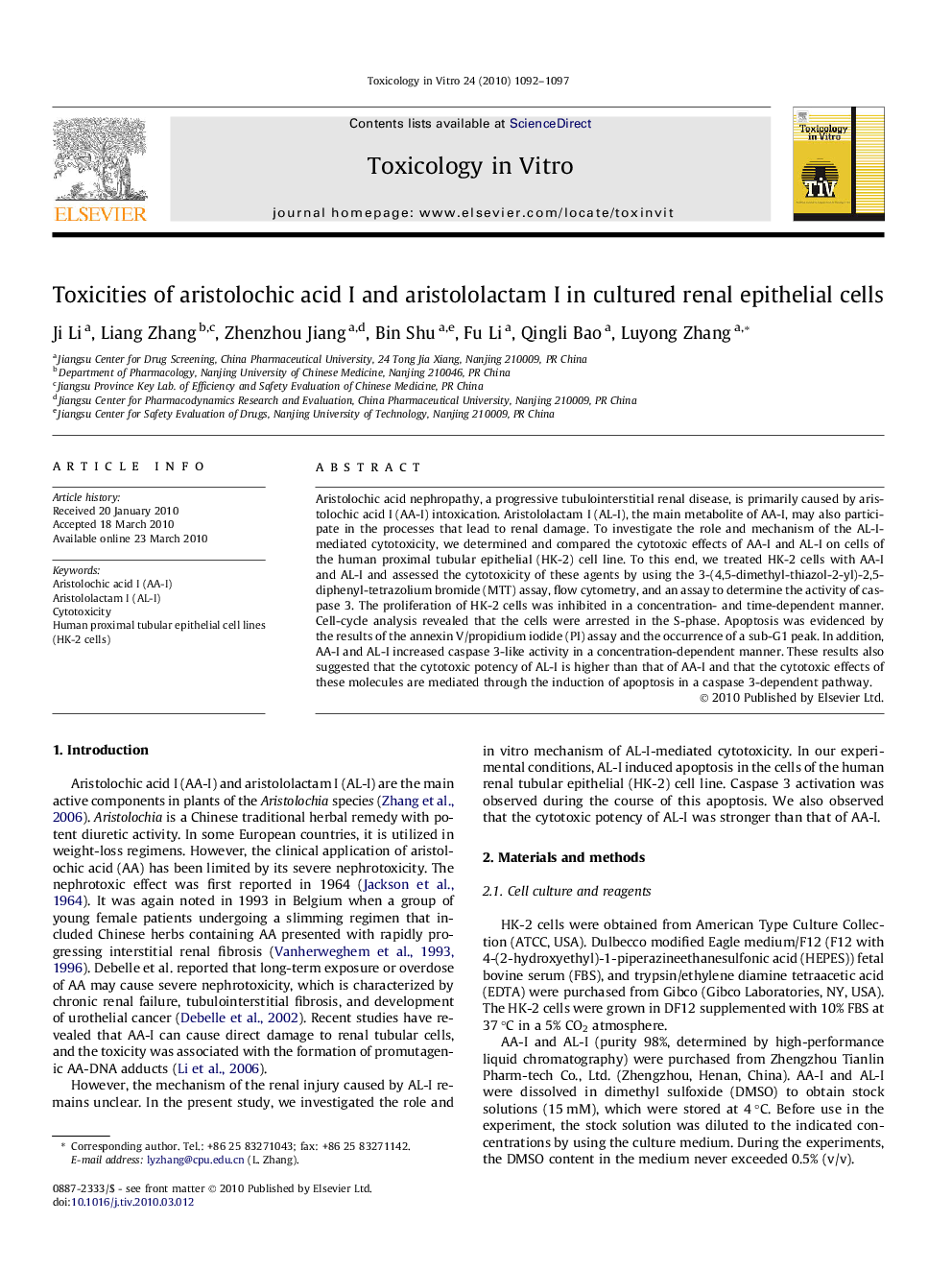| کد مقاله | کد نشریه | سال انتشار | مقاله انگلیسی | نسخه تمام متن |
|---|---|---|---|---|
| 2602741 | 1133797 | 2010 | 6 صفحه PDF | دانلود رایگان |
عنوان انگلیسی مقاله ISI
Toxicities of aristolochic acid I and aristololactam I in cultured renal epithelial cells
دانلود مقاله + سفارش ترجمه
دانلود مقاله ISI انگلیسی
رایگان برای ایرانیان
کلمات کلیدی
موضوعات مرتبط
علوم زیستی و بیوفناوری
علوم محیط زیست
بهداشت، سم شناسی و جهش زایی
پیش نمایش صفحه اول مقاله

چکیده انگلیسی
Aristolochic acid nephropathy, a progressive tubulointerstitial renal disease, is primarily caused by aristolochic acid I (AA-I) intoxication. Aristololactam I (AL-I), the main metabolite of AA-I, may also participate in the processes that lead to renal damage. To investigate the role and mechanism of the AL-I-mediated cytotoxicity, we determined and compared the cytotoxic effects of AA-I and AL-I on cells of the human proximal tubular epithelial (HK-2) cell line. To this end, we treated HK-2 cells with AA-I and AL-I and assessed the cytotoxicity of these agents by using the 3-(4,5-dimethyl-thiazol-2-yl)-2,5-diphenyl-tetrazolium bromide (MTT) assay, flow cytometry, and an assay to determine the activity of caspase 3. The proliferation of HK-2 cells was inhibited in a concentration- and time-dependent manner. Cell-cycle analysis revealed that the cells were arrested in the S-phase. Apoptosis was evidenced by the results of the annexin V/propidium iodide (PI) assay and the occurrence of a sub-G1 peak. In addition, AA-I and AL-I increased caspase 3-like activity in a concentration-dependent manner. These results also suggested that the cytotoxic potency of AL-I is higher than that of AA-I and that the cytotoxic effects of these molecules are mediated through the induction of apoptosis in a caspase 3-dependent pathway.
ناشر
Database: Elsevier - ScienceDirect (ساینس دایرکت)
Journal: Toxicology in Vitro - Volume 24, Issue 4, June 2010, Pages 1092-1097
Journal: Toxicology in Vitro - Volume 24, Issue 4, June 2010, Pages 1092-1097
نویسندگان
Ji Li, Liang Zhang, Zhenzhou Jiang, Bin Shu, Fu Li, Qingli Bao, Luyong Zhang,